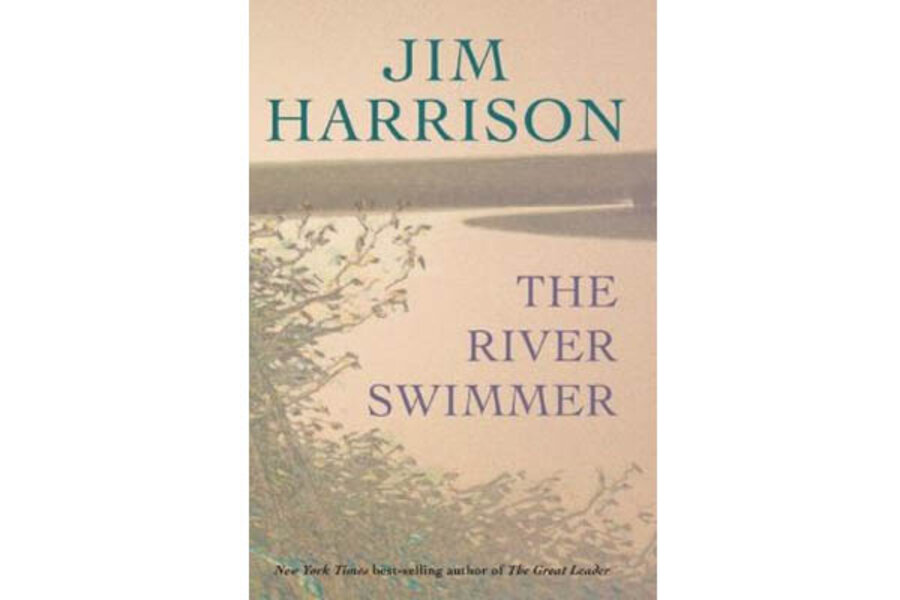A man gets saved from pretentiousness by pickled baloney and his paintbrush in the first novella in Jim Harrison's (“Legends of the Fall”) slim new collection, The River Swimmer.
After what a friend calls an “altercation,” involving yellow paint being flung on him and his reaction, 60-year-old academic and art expert Clive comes home to his family's Michigan farm in “The Land of Unlikeness.”
Clive is ostensibly staying with his octogenarian mother, a birdwatcher whose sight is failing, so that his sister can take her first trip to Europe. Really, he's licking his wounds and trying to figure out what's left for him after the failure of his career as an artist, his divorce decades earlier, and his estrangement from his grown daughter.
“Previously when he had come home for a visit, he hadn't come home in spirit, but now the whole of him was stuck here.”
Clive's mother is a upper Midwestern marvel, immediately recognizable to anyone who's ever lived in Michigan. From her cooking – “Mother had always believed that seasoning beyond salt and pepper was a sign of moral weakness” – to her parsimony, she's as fun to read about as she would be difficult to live with.
“Thank you, son, but I didn't need a radio,” she had called at 6:30 a.m. to tell him after Clive, his sister, and daughter pooled their money to buy her a Camry a few years ago.
“All cars have radios, Mother,” a still-sleeping Clive croaks in reply.
After returning to the farm, Clive finds out that his high school crush, Laurette, is still in the area. More interestingly, remembering his farmer father, who had always been proud of his artistic boy, Clive finds himself wanting to create art again, after decades just pontificating about it.
In a nice bit, Clive splurges on a 120-count box of Crayolas, and is disgusted to find that Violet Blue and Mulberry have been replaced by Asparagus and Macaroni and Cheese. “Upstarts,” he mutters.
His subjects are ones that he would scorn as banal in his role as art authority, but late in life, Clive gets a chance to figure out the difference between being a success and happy.
Harrison then completely switches gears for the brief titular novella. “The River Swimmer” is a tall tale involving superhuman feats of strength and a touch of magic. Thad Love is a teenage boy who prefers to swim in currents instead of chlorine. Picture a young Michael Phelps with a horror of competition and a belief in water babies.
After falling afoul of a local girl's father, Thad swims 100 miles across Lake Michigan to Chicago with a broken cheekbone. Then things get really strange.
Harrison's two Michigan farm boys are far apart in age but grounded by their experiences with the land – or water, as the case may be. When next in northern Michigan, I'd rather visit Clive and his Crayolas than Thad and his river, but Harrison writes memorably about the upper Midwest.







